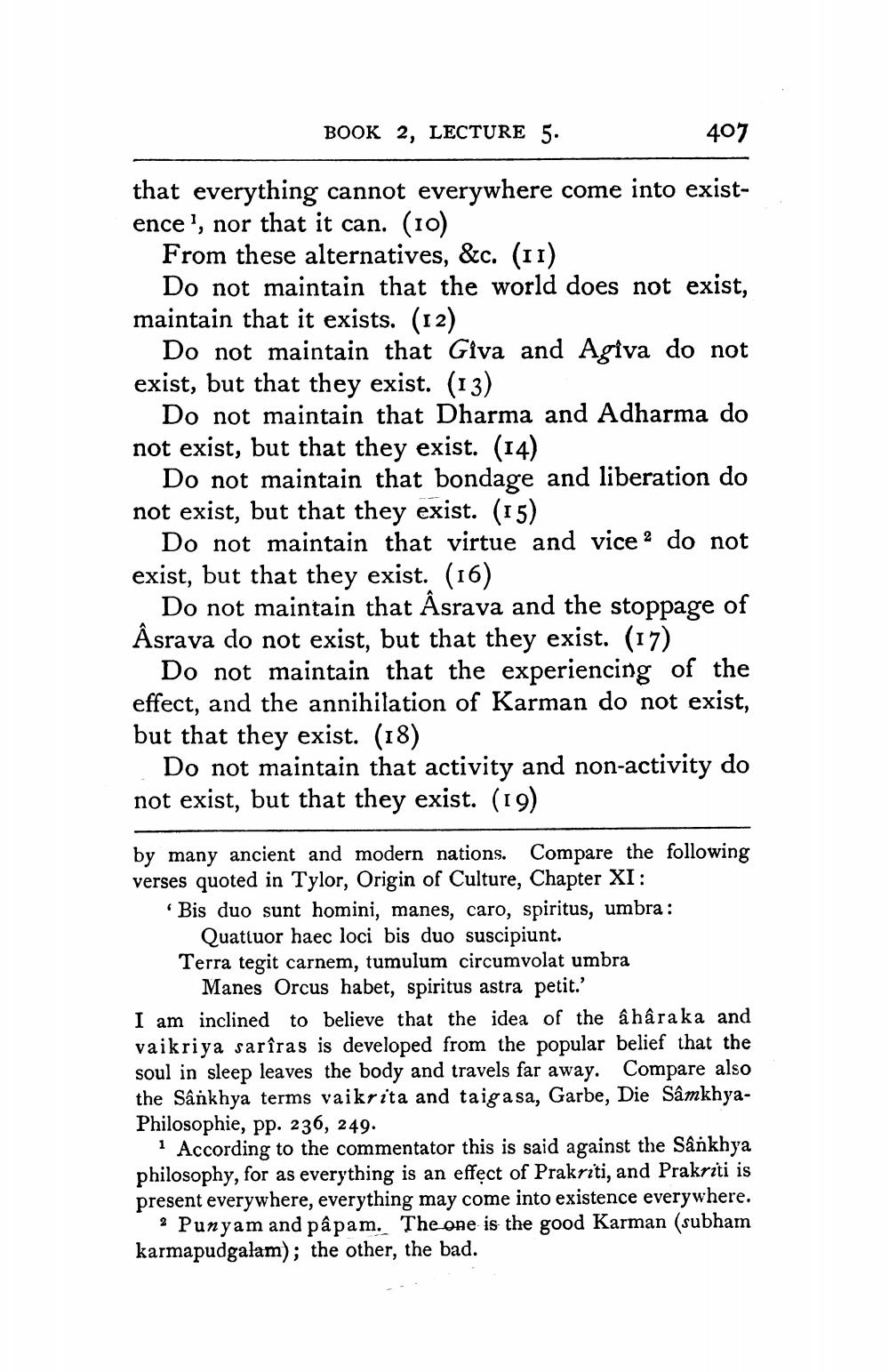________________
BOOK 2, LECTURE 5.
407
that everything cannot everywhere come into existence', nor that it can. (10)
From these alternatives, &c. (11)
Do not maintain that the world does not exist, maintain that it exists. (12)
Do not maintain that Giva and Agiva do not exist, but that they exist. (13)
Do not maintain that Dharma and Adharma do not exist, but that they exist. (14)
Do not maintain that bondage and liberation do not exist, but that they exist. (15)
Do not maintain that virtue and vice 2 do not exist, but that they exist. (16)
Do not maintain that Âsrava and the stoppage of Åsrava do not exist, but that they exist. (17)
Do not maintain that the experiencing of the effect, and the annihilation of Karman do not exist, but that they exist. (18)
Do not maintain that activity and non-activity do not exist, but that they exist. (19)
by many ancient and modern nations. Compare the following verses quoted in Tylor, Origin of Culture, Chapter XI:
Bis duo sunt homini, manes, caro, spiritus, umbra :
Quattuor haec loci bis duo suscipiunt. Terra tegit carnem, tumulum circumvolat umbra
Manes Orcus habet, spiritus astra petit.' I am inclined to believe that the idea of the â hâraka and vaikriya sarîras is developed from the popular belief that the soul in sleep leaves the body and travels far away. Compare also the Sânkhya terms vaikrita and taiga sa, Garbe, Die SâmkhyaPhilosophie, pp. 236, 249.
According to the commentator this is said against the Sankhya philosophy, for as everything is an effect of Prakriti, and Prakriti is present everywhere, everything may come into existence everywhere.
2 Punyam and pâpam. The one is the good Karman (subham karmapudgalam); the other, the bad.




